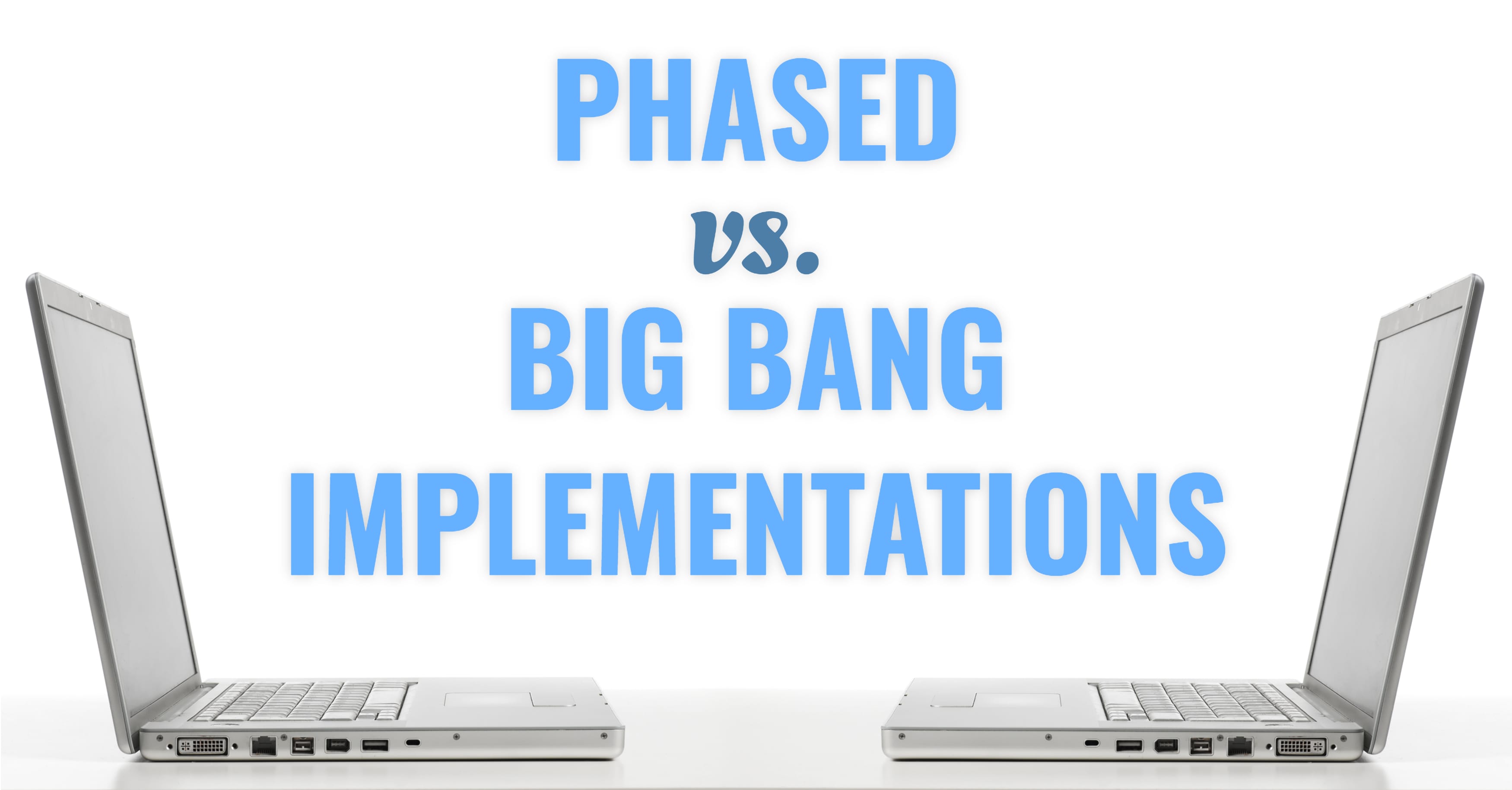
What’s the Best Implementation Strategy for You?
So, you’re about to undergo a brand new ERP implementation, and you’ve got your entire timeline planned out. There’s a go-live date circled on the calendar. But what does your company’s go-live date really represent? Is that when the first stage rolls out, or when every single part of the system launches? That’s the difference between a phased ERP implementation and an all-in, big bang go live. The two are very different philosophies of ERP implementation. One seeks to just throw everyone into the entirety of the new system and figure out any kinks as an organization, and the other to stagger the roll out of the new ERP across departments and modules so that there are a number of small test environments for solving problems. That way, by the time the whole business is on ERP, the software is supposedly working smoothly.
Unsure whether you should phase in your new ERP implementation or take an all-in approach? It can be tough to determine which method is the right fit for your unique business needs. We’ll break down the general ideas behind each theory and why you might want to pick one over the other.
Big Bang Implementation
The pervading theory of big bang implementation is that every functionality and module goes live on the same date. This is a “throw them into the pool so they learn to swim” style implementation. Of course, while the name may imply a state of slight chaos after go-live, that’s not necessarily true. A lot of planning will need to go into a big bang implementation.
The idea behind such a technique is that everyone in the company learns about the new software at the same time. Co-workers will be able to help each other during the learning process, and the training period won’t be as long. While this is admittedly a higher risk strategy, it can sometimes be the most reasonable, especially for smaller businesses where it would be excessive to split implementation out over departments that only contain a few people.
This won’t be the right solution for larger companies that don’t have a strong support network that can withstand being bombarded with questions and support tickets in the days after go-live. If you want to go for the big bang method but are afraid that you won’t have a strong enough safety net in place, you might want to take advantage of outside consulting . Your business can bring in ERP experts that are trained to communicate knowledge and solve real issues for the period of implementation to act as a springboard for all questions and concerns.
Phased Implementation
Phased implementation prefers the incremental approach to rolling out ERP modules. This is a less risky style of go-live, as it is easier to roll back malfunctioning or poor new features if they haven’t been implemented across the whole company. It will also put less strain on your project team, as they will be able to plan ahead and spread out their resources over the course of the whole phased implementation, rather than having to worry about different departments having problems with separate modules simultaneously.
Phasing can happen in several different ways, as businesses choose the best style for their needs. You could roll out distinct ERP modules one at a time. You could also install the whole ERP system across different business departments or geographical offices. Whatever option fits you best, the incremental style means you can focus the efforts of your support team and software experts on one task at a time.
Of course, phased implementation may not be the right choice for your company just because it seems less risky than big-bang style. As we’ve mentioned previously, it won’t be tenable in small-to-midsize businesses that only have a small group of employees. Phasing will also naturally increase the time a project takes—not great for companies trying to stay on a strict go-live deadline or those who want to keep a unified sense of urgency and excitement about an implementation across the entire company. A consulting firm can help clients determine how to phase ERP projects in accordance with unique business needs.
Wrap Up
It can be difficult deciding on which style of ERP implementation would be best for your business and executing it within your desired time period and budget. If you are having trouble, get in touch with one of our consultants at Datix today! As an Epicor Platinum Partner with over 20 years of experience helping businesses implement ERP, we can work together with you to build the best implementation plan for your business!
{{cta(‘770c1544-d87d-4acb-9fc4-7a25e1385094′,’justifycenter’)}}

